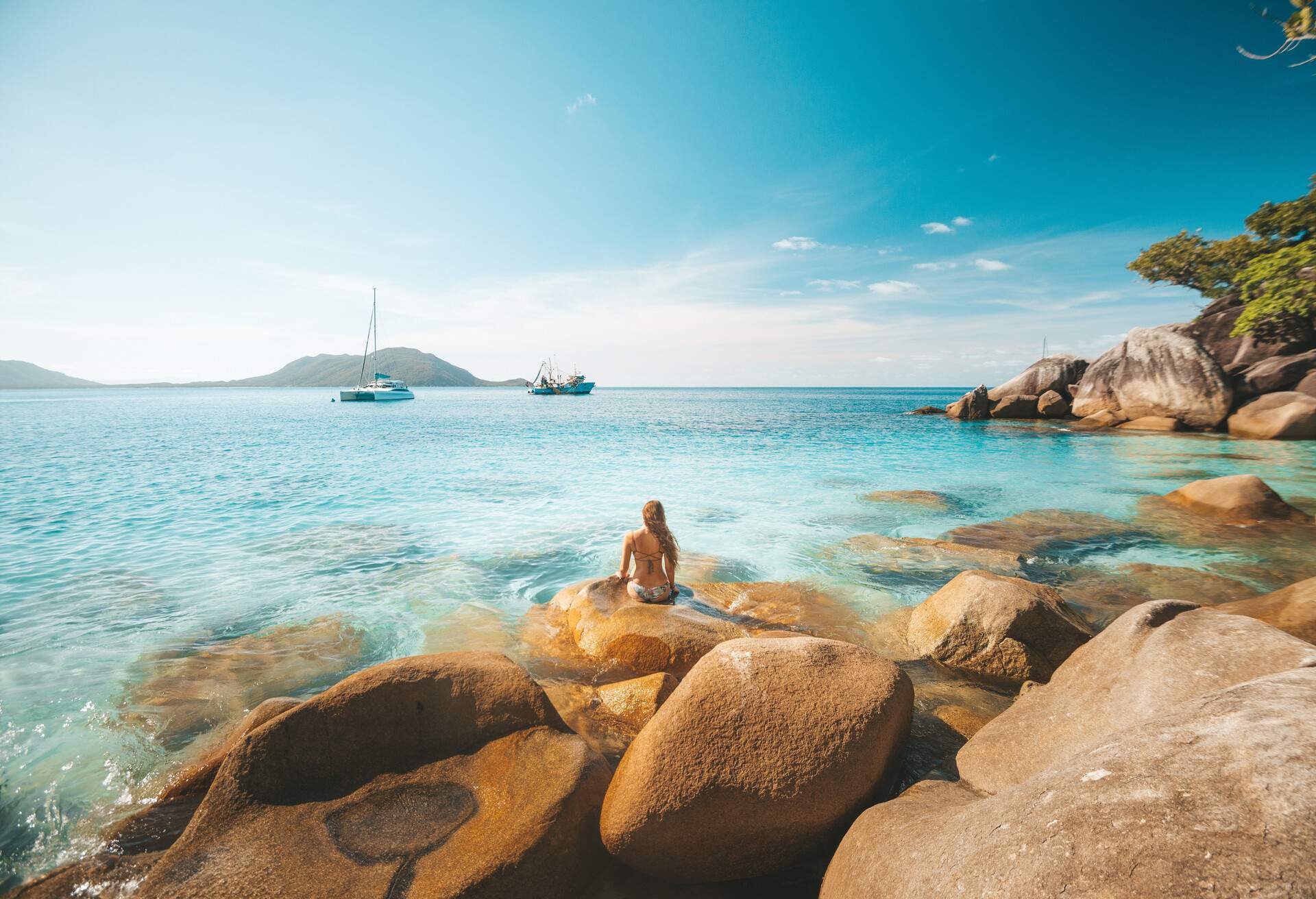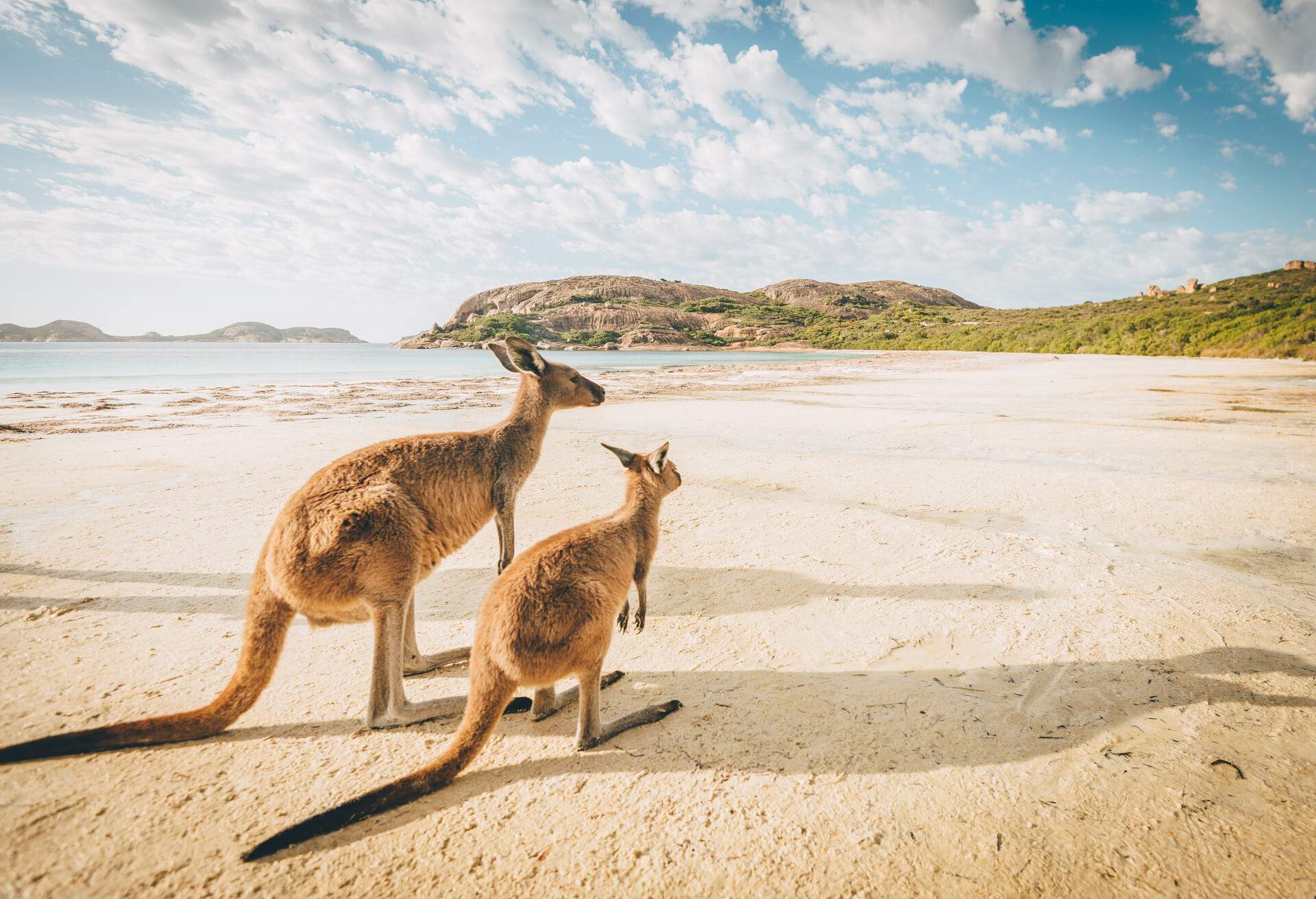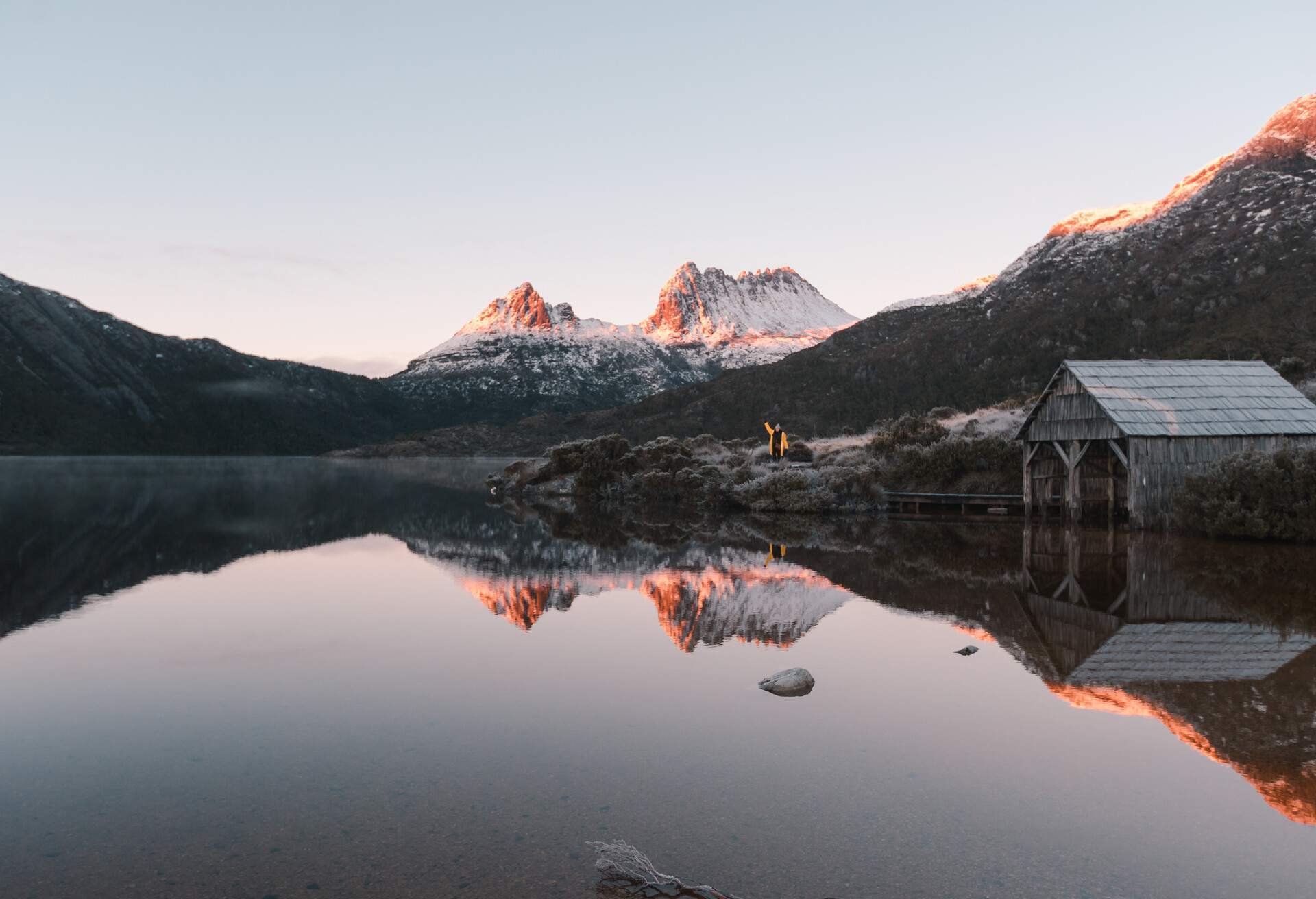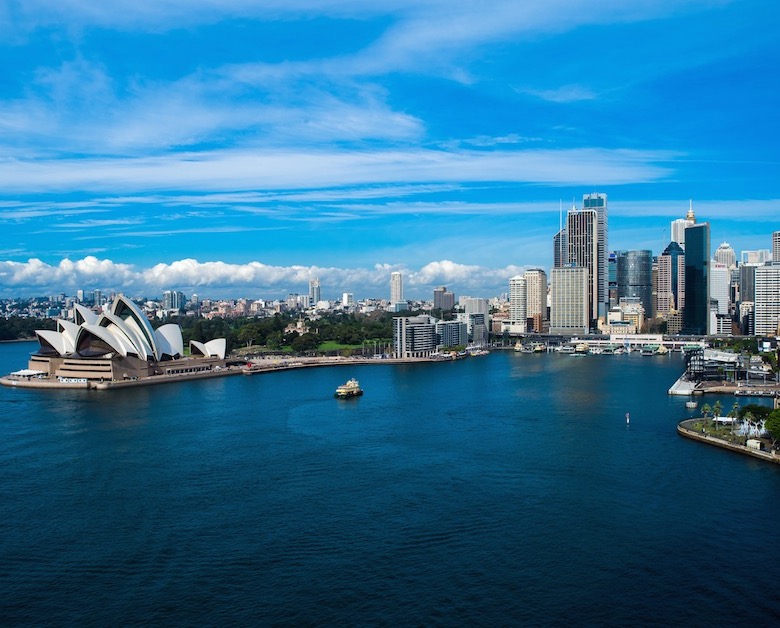Australia has vast stretches of picturesque coastline, with white-sand and clear blue waters. Whether you’re hoping for untouched wildlife or sandy stretches right next to city streets, I’ve got the lowdown on the best beaches in Australia.
You’ll find stunning secluded coves and vast beaches all over the country, so wherever you’re planning to travel you’ll find a beautiful spot to relax. Here’s some of the best picks to add to your bucket list.
So, where are the best beaches in Australia?
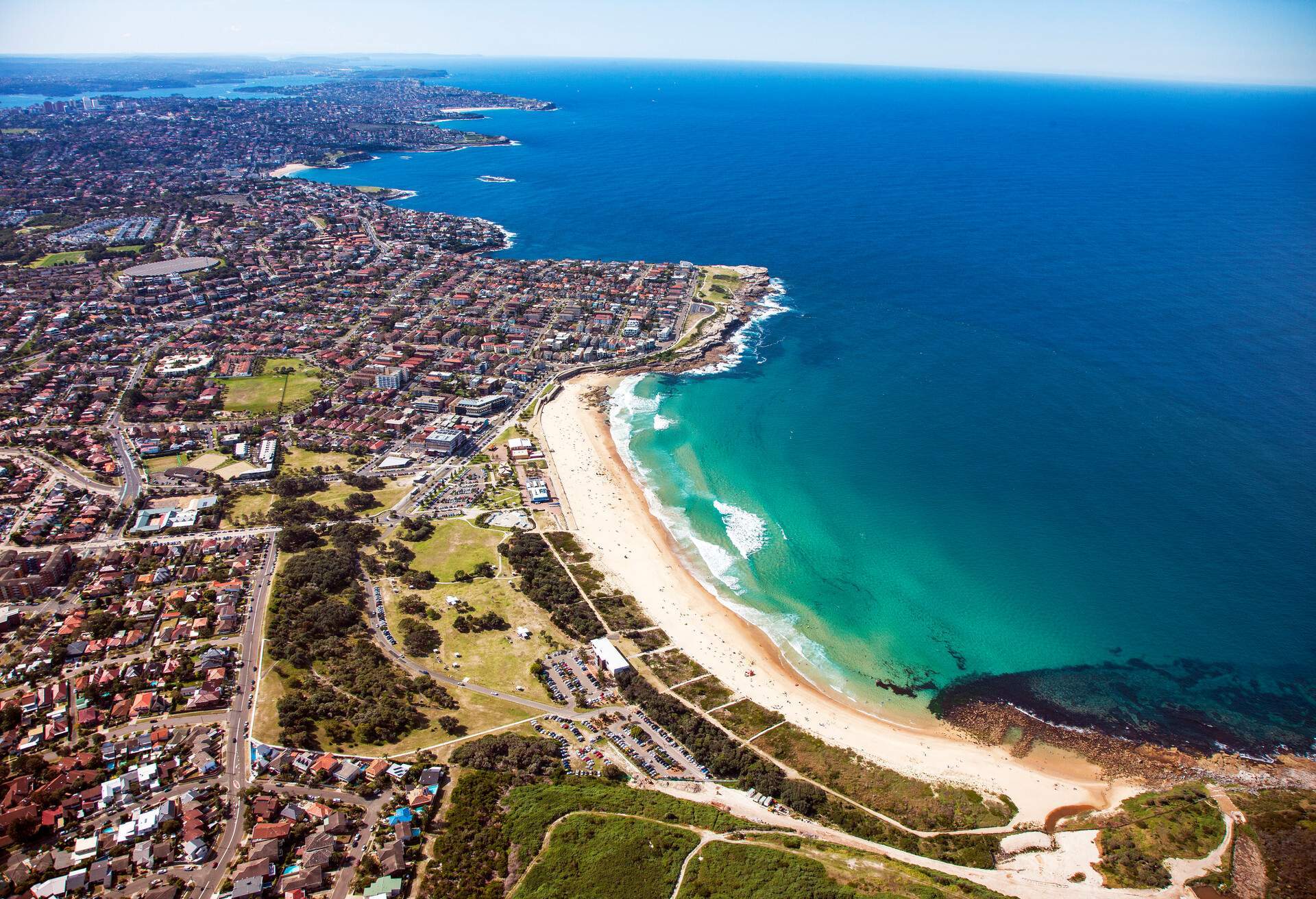
Finding Australia’s best beaches will depend on what you want out of your beach holiday. If you’re looking for lots of sunshine, a party atmosphere and plenty to do, the beaches along Queensland’s Gold Coast will have what you want. Want something more relaxed but with similar weather? Head a little further south to the Sunshine Coast. Surfers will find excellent beaches throughout the country too, including Surfers Paradise in Queensland and Bells Beach in Victoria.
You’ll find gorgeous beaches throughout the country, including the aptly named Turquoise Bay in Western Australia and the snow-white sands of Hyams Beach in New South Wales. If your idea of beauty is beaches where nature is allowed to run free, you’ll likely find the beaches of Western Australia, particularly further north, to be picture-perfect getaways.
Are the beaches in Australia warm?
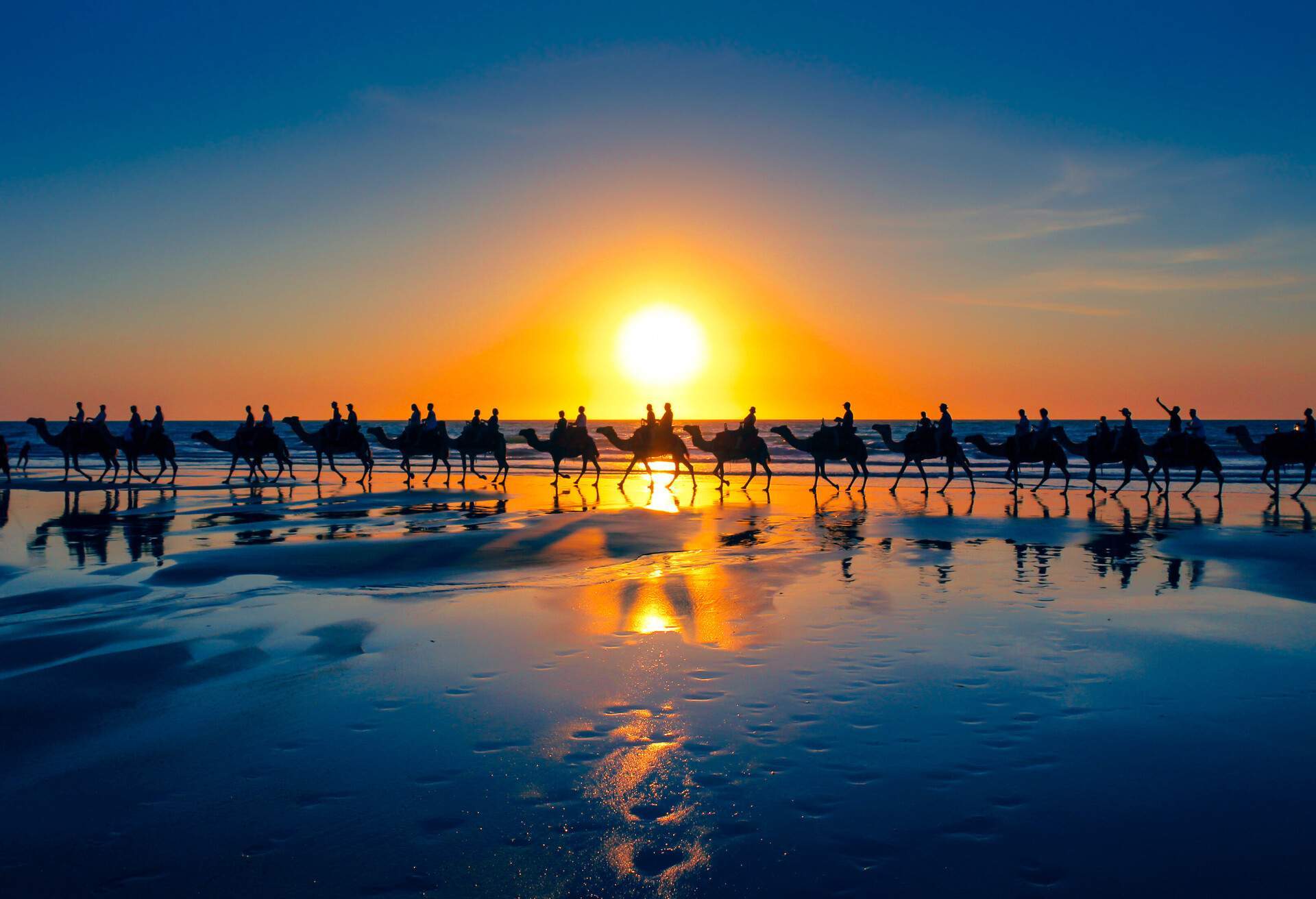
The warmth of Australia’s beaches depends on where you go. In Queensland, which has a sub-tropical climate, the beaches along the gold coast are usually warm throughout the year and particularly warm in summer, some getting up to around 84°F. Conversely, the Victorian beaches receive Arctic currents throughout the year, so they tend to be cooler even during hot weather, usually between around 60 and 66°F.
When is it best to visit Australia’s beaches?
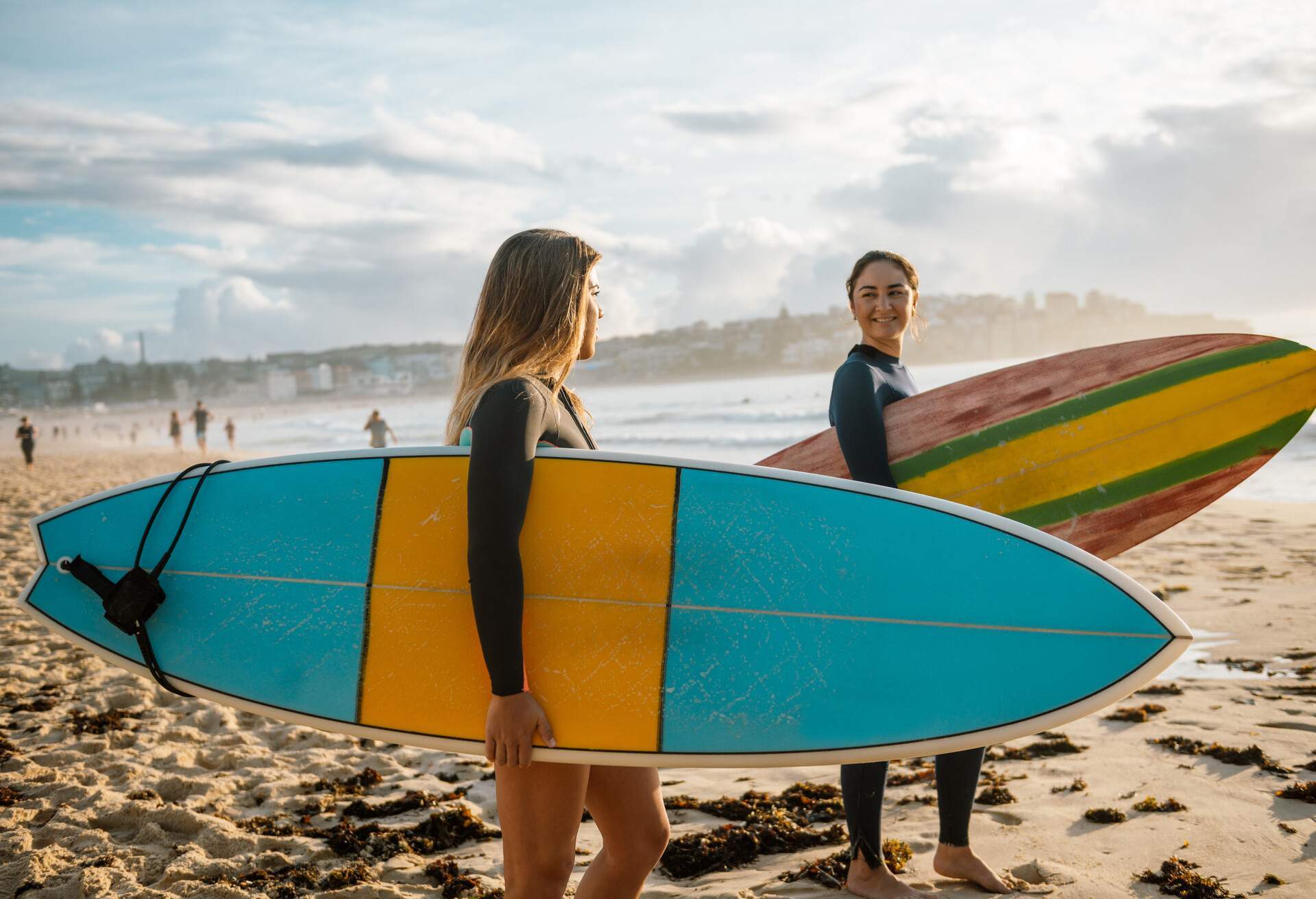
Remember that Australia’s summer occurs between December and February. You’ll often find the warmest water temperatures during March, but Australia’s size means there’s a range of climates throughout the country, so you can find pleasant weather at just about any time of year.
In the southern parts of Australia, you’ll want to opt for late spring to early autumn, between November and March, for the best weather. In the northern parts it’s usually best to visit in the dry season between June and September. School holidays are held from mid-December to the beginning of February, so this is when beaches will be at their busiest with local holidaymakers. If you visit during summer, remember that this is also bush fire season in Australia, so keep an eye on alerts during your stay.
Best beaches in Australia: Queensland
Queensland is Australia’s sub-tropical region, with warm weather and warm water all year round. It’s one of the most popular places in the country for travelers looking to spend time at Australia’s beaches. Many are easily reached by car or public transport from the state’s capital of Brisbane.
Southern Queensland is particularly good for beaches, with the Gold Coast and Sunshine Coast areas boasting plenty of beaches and city benefits. The Great Barrier Reef stretches along most of the state’s eastern coast and is one of the best locations in the world for snorkeling and scuba diving.
Whitehaven Beach
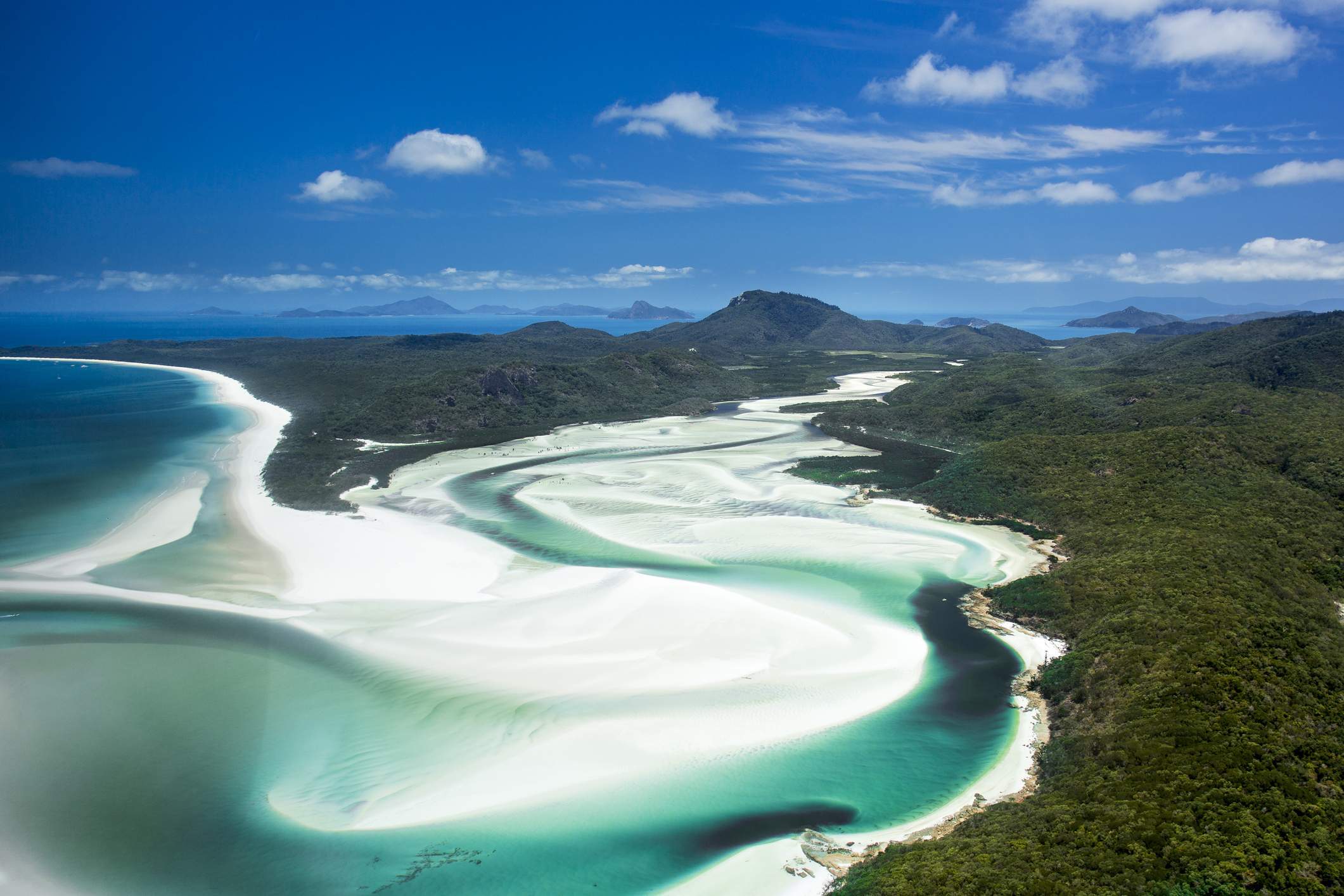
Whitehaven Beach is a white silica-sand beach on the Whitsunday Islands, which sits in the heart of the Great Barrier Reef. Travelers usually reach the beach via boat from Shute Harbour. Boats usually arrive at Tongue Bay where you can start your trip by taking a short hike up to a lookout that gives wonderful views of the beach.
As it’s located inside a protected National Park, you can be sure that the lush forests and marine wildlife will remain pristine. The beach is popular with families and makes for a wonderful day trip. Relax on the pale sand and soak in the warm water. If you want to stay at the beach, there’s a camping area at the southern end.
Surfers Paradise Beach
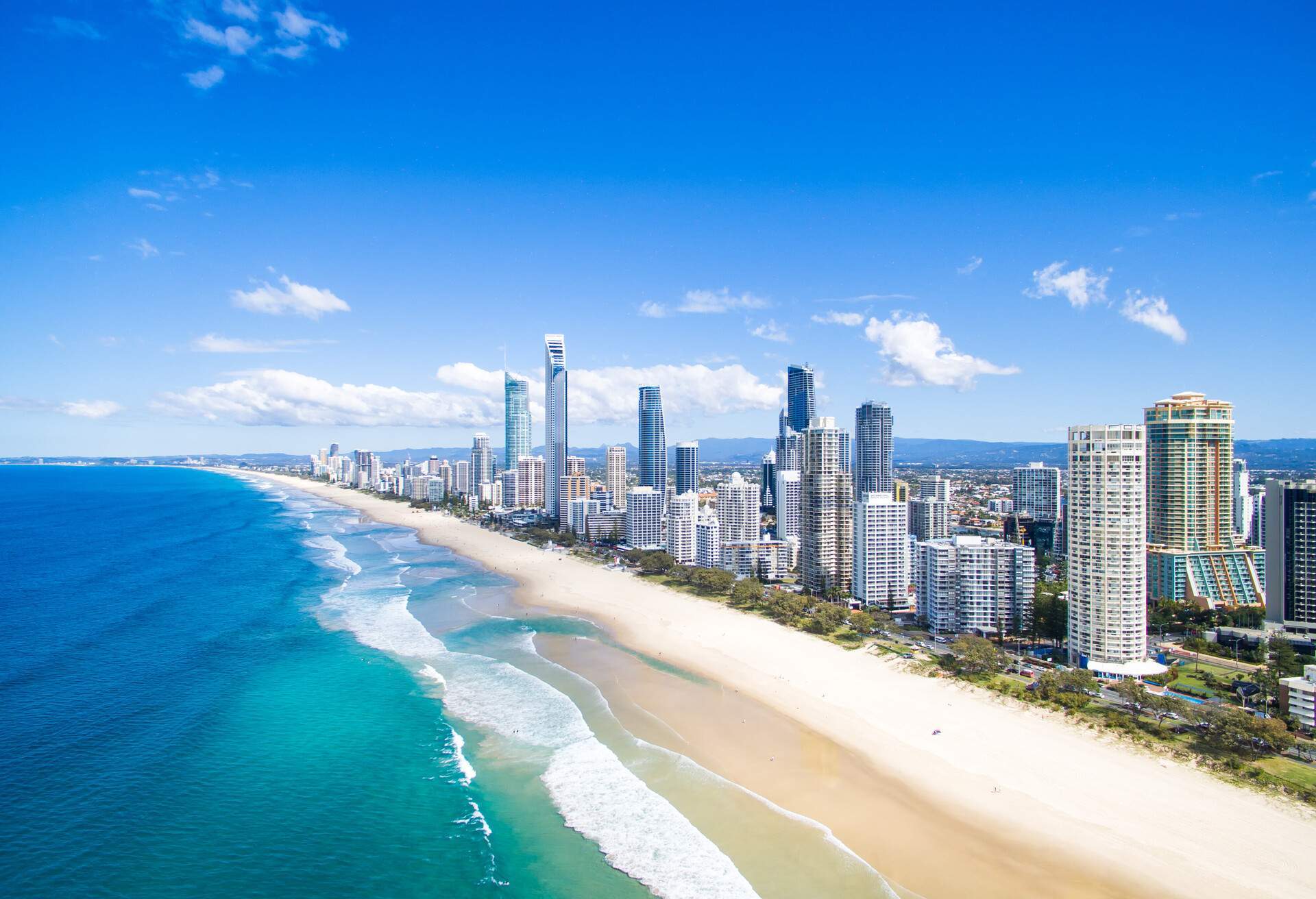
Surfers Paradise is one of Queensland’s most well-known beaches, both for its beautiful white sand, deep blue sea, and its city conveniences. The beach itself is right next to lines of restaurants and cafes, as well as shops and apartment accommodations.
Like the name suggests, this beach is perfect for surfers and with clean breaks and relatively small waves, it’s a great place for beginners to learn to surf. It is easily accessible via walking and public transport, particularly if you’re staying at one of the many apartments that line the edge of the beach.
Best beaches in Australia: New South Wales
South of Queensland, the beaches in New South Wales are a mix of calm clear waters, perfect for swimmers and families, and constant waves that surfers will love. As you move further south, the water temperature will drop a little, but you’ll still find fairly warm waters during summer, usually between around 68 and 73°F. In New South Wales, you’ll find a good mix of beaches that are remote pockets of nature and beaches that are close to city amenities.
Hyams Beach
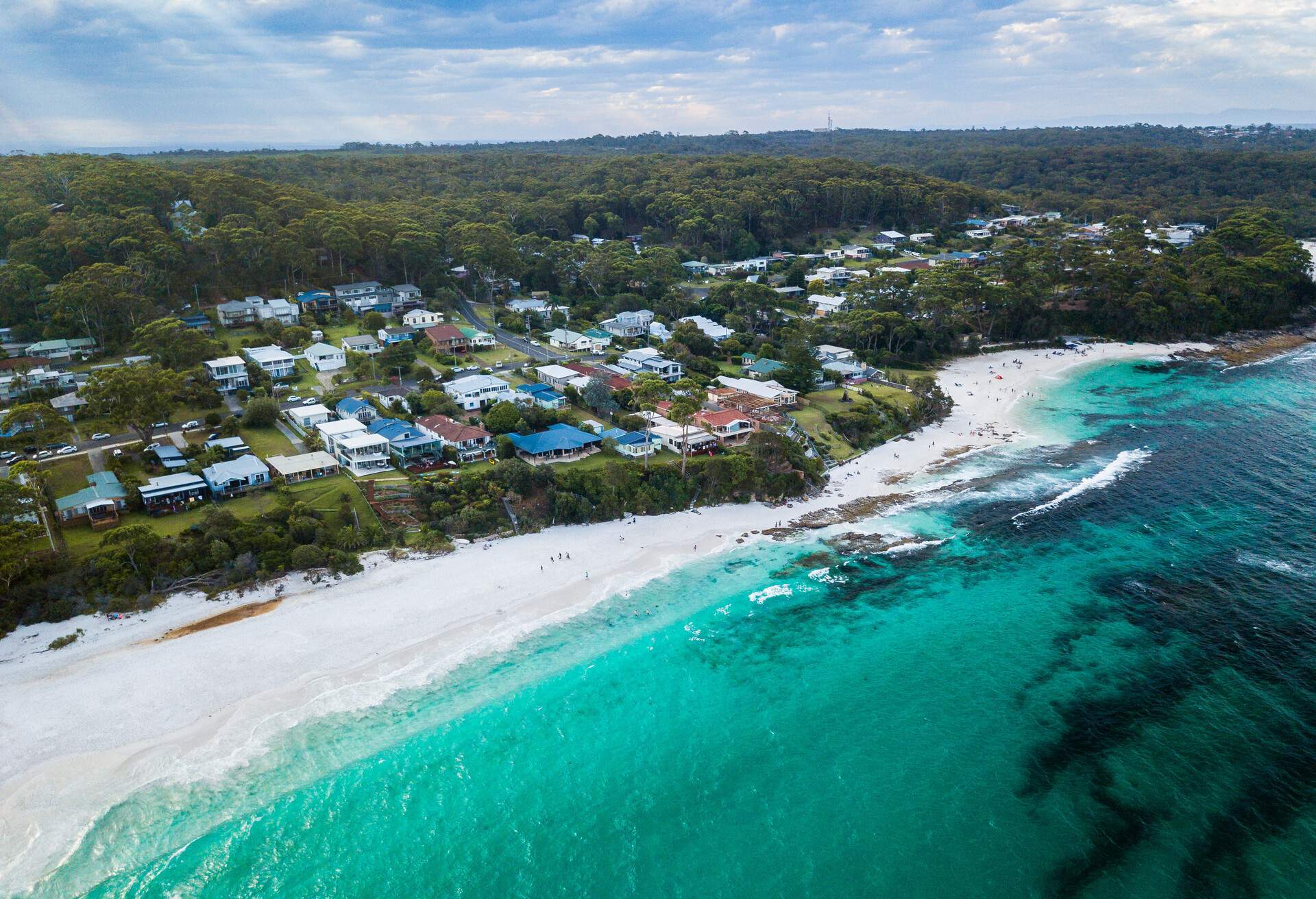
Hyams Beach is a beautiful beach around two and a half hours from Sydney by car, known for its snow-white fine sand and clear waters. The beach is often calm so it’s perfect for swimming and snorkeling, sitting just on the edge of the Jervis Bay Marine Park. If you’re visiting between May and November, you might be lucky enough to spot migrating whales or bottlenose dolphins.
Try to visit during the week if you can, as it’s a popular weekend destination for Sydney locals and parking can become almost impossible. If the beach is too busy, there are some beautiful bushwalking trails in the area. This includes Hyams Beach Trail which is an excellent trail for spotting the area’s local colorful birds, with signs to help visitors identify them.
Bondi Beach

Bondi Beach is just a 15-minute trip by bus or car from the Sydney Central Business District and it’s one of the most internationally well-known beaches in Australia thanks to popular reality shows centered around the blonde-sand beach. The waves can get a bit unruly here so make sure to stay between the flags, but on clear days it’s a great spot for surfing.
If you’ve got a skateboard, you’ll love the beachfront skate park and hikers can take in the scenery on the Bondi to Bronte coastal walk along the beach’s sandstone cliffs. There are plenty of nearby cafes to grab a bite to eat during the day and the Bondi Icebergs Club is renowned for its excellent views of the beach in the evenings.
Best beaches in Australia: Western Australia
Western Australia takes up the entire western coastline of Australia, meaning you’ll get a lot of variation in water temperatures and weather depending on where you visit. Peak season here differs whether you go north or south. Northern beaches are best visited between May and October, while southern beaches are best visited between November and March (the dry season for both areas).
Unlike many of the beaches in Queensland and New South Wales, which often have shops and city streets close by, one of the key features of many of Western Australia’s best beaches is how removed they are from bustling city life. You’ll find untouched wilderness and plenty of wildlife (both marine and land) when you visit the beaches here.
Turquoise Bay
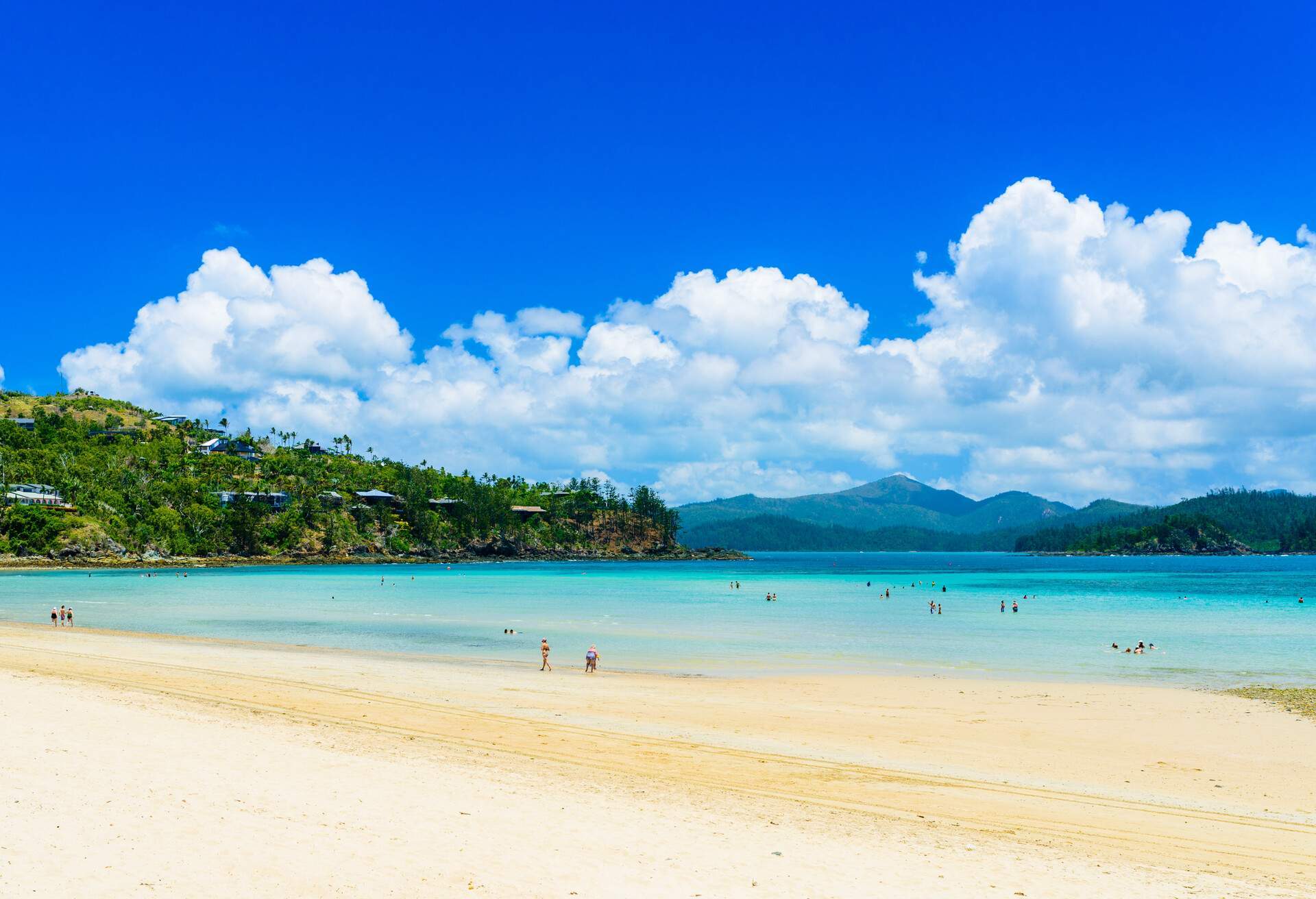
As soon as you arrive at Turquoise Bay and see its beautiful blue-green waters and soft white sand, you’ll understand why it so often tops lists of the most beautiful beaches in Australia. The most beautiful part of Turquoise Bay lies just below the surface: Ningaloo Reef, the largest fringing reef in Australia that sits right by the sand so you can go snorkeling directly from the beach.
The Bay is located inside the Cape Range National Park, which has a A$15 (around $10) entry fee and you’ll need to drive to the beach as there’s no available public transport from the nearest city, Exmouth, around 45 minutes away by car. Make sure you bring snacks, drinks and plenty of sunscreen as you won’t find many facilities aside from toilets.
Rottnest Island
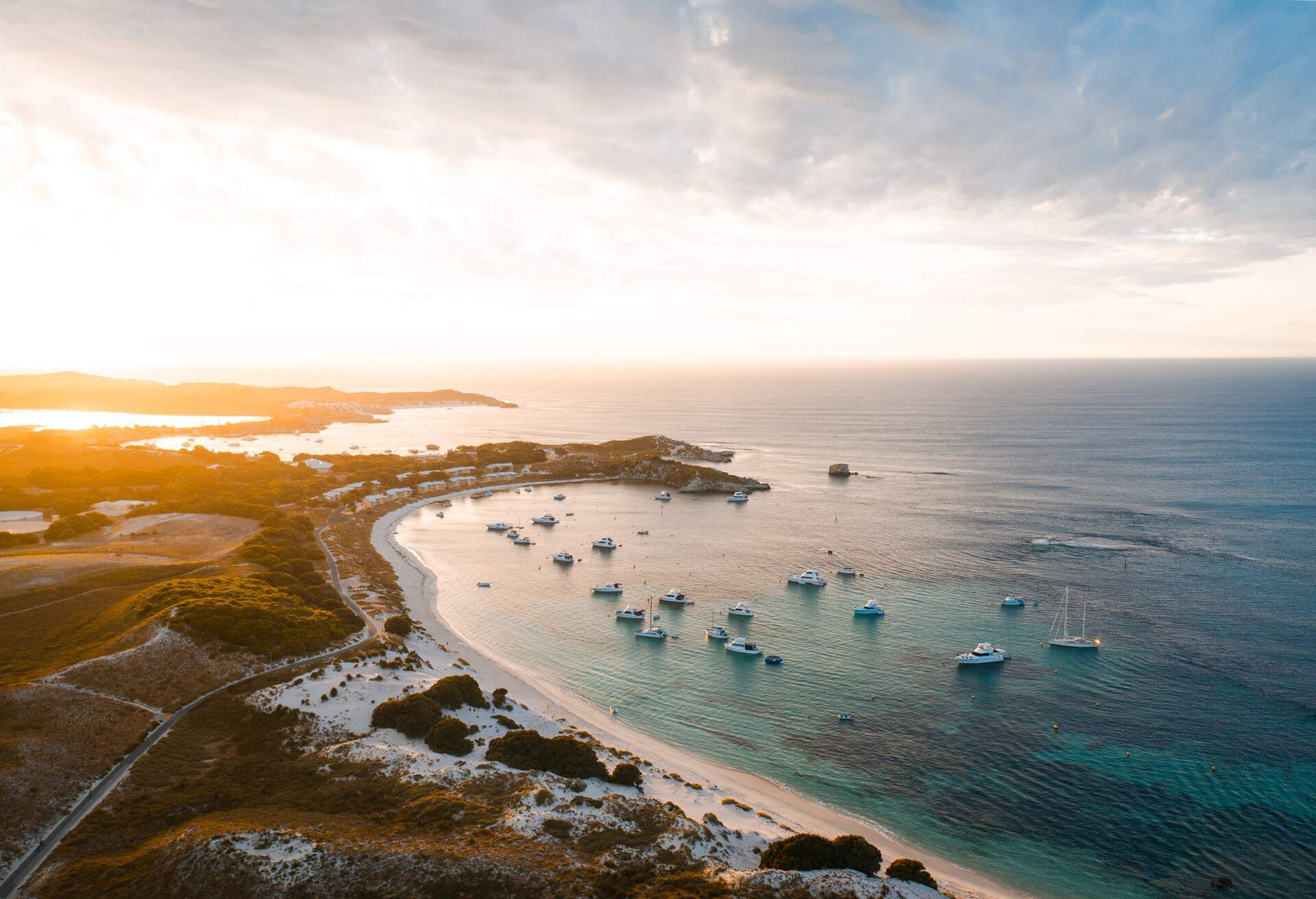
The beaches aren’t usually the main reason people think to visit Rottnest Island (accessible via boat from Perth and Fremantle) but if you’re making the trip here anyway, they aren’t to be missed. The island’s main attraction is the population of quokkas, small native marsupials known for their cheeky smiles who will happily pose for a selfie with tourists.
The island’s position as a sanctuary for quokkas has helped to keep it nearly untouched and the untamed wilderness surrounding the island’s beaches creates an incredible atmosphere. This is a great place to visit for families as kids are sure to love meeting the quokkas and you’ll find patrolled safe swimming areas clearly marked along the sandy beaches.
Cable Beach
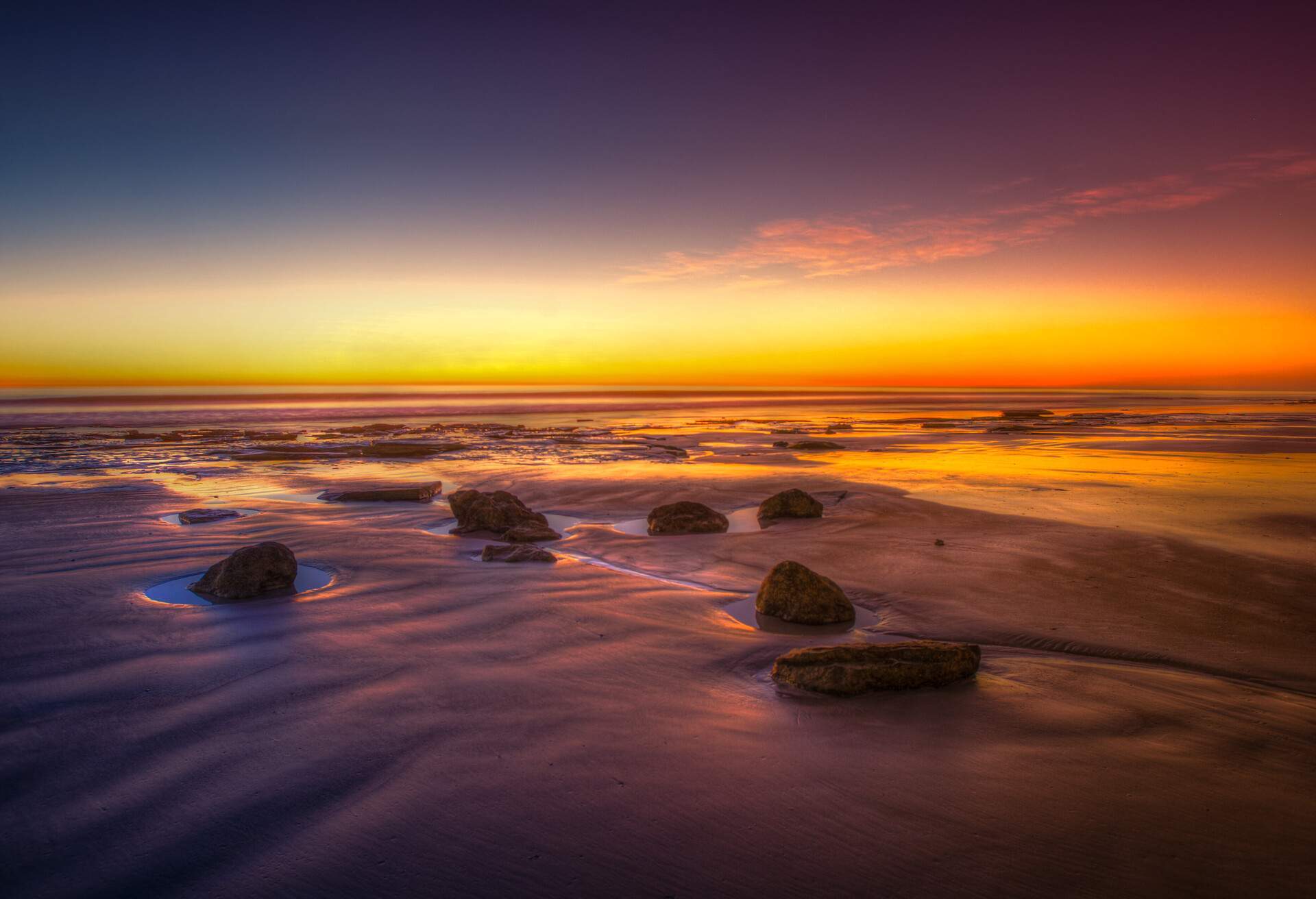
Cable Beach is the main beach of Broome, in the north of Western Australia, famous for its untouched stretches of pale sand and its remarkable sunsets. The beach is only around 10 minutes away from Broome by car or bus and there’s also accommodation on the beach itself. One of the beach’s most popular activities, particularly for young families, are the camel rides along the beach, offered throughout the day.
Although it’s steadily growing in popularity due to its picture-perfect landscape, the beach is often quiet even during peak season. The large stretches of sand means it’s almost always easy to find a place to set up your towels or beach tent and settle in for the day.
Best beaches in Australia: Victoria
Victoria’s coastline makes up part of Australia’s southern coast, which means it gets cold currents from the Arctic Ocean throughout the year. During summer, water temperatures average around 63°F, though the water will warm up during heat waves.
Many of the state’s beaches are surrounded by cliffs, which means you’ll often need to go up and down steps when you arrive and leave, though many will also have ramps you can use. The beaches are usually well-connected by train and bus to the capital city of Melbourne.
Bells Beach
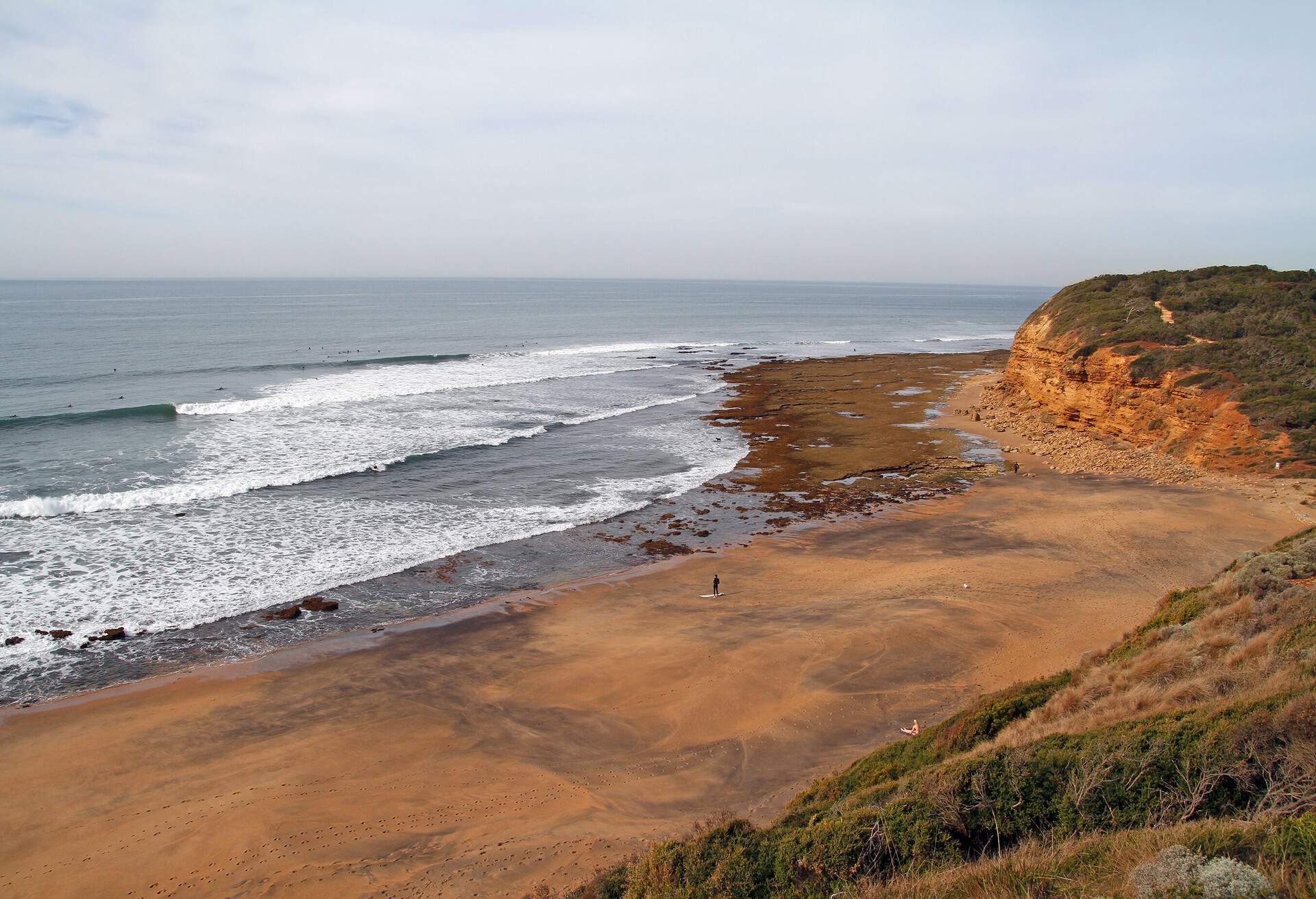
Bells Beach is one of the most renowned beaches in Victoria and is often considered the home of surfing in Australia, hosting the country’s oldest surfing competition. If you aren’t a confident surfer, it’s likely you’ll prefer to spend your time at Bells sitting on the beach watching the pros with waves frequently getting up to five meters.
Close to the beachside town of Torquay, you can drive or take a bus there in around 15 minutes or you can make the roughly one-and-a-half-hour-long cliffside hike from Torquay’s Front Beach to Bells Beach. If you’re looking for a calmer beach in the area, Jan Juc Beach has a smaller swell while still getting good waves for surfing and the Torquay Front Beach is a lovely bay beach that often has little to no waves.
Best beaches in Australia: South Australia
Like Victoria, beaches in South Australia tend to have cooler water throughout the year averaging around 65°F in the summer months. One of the best locations for beaches in South Australia is off the mainland on Kangaroo Island, Australia’s third largest island.
Vivonne Bay
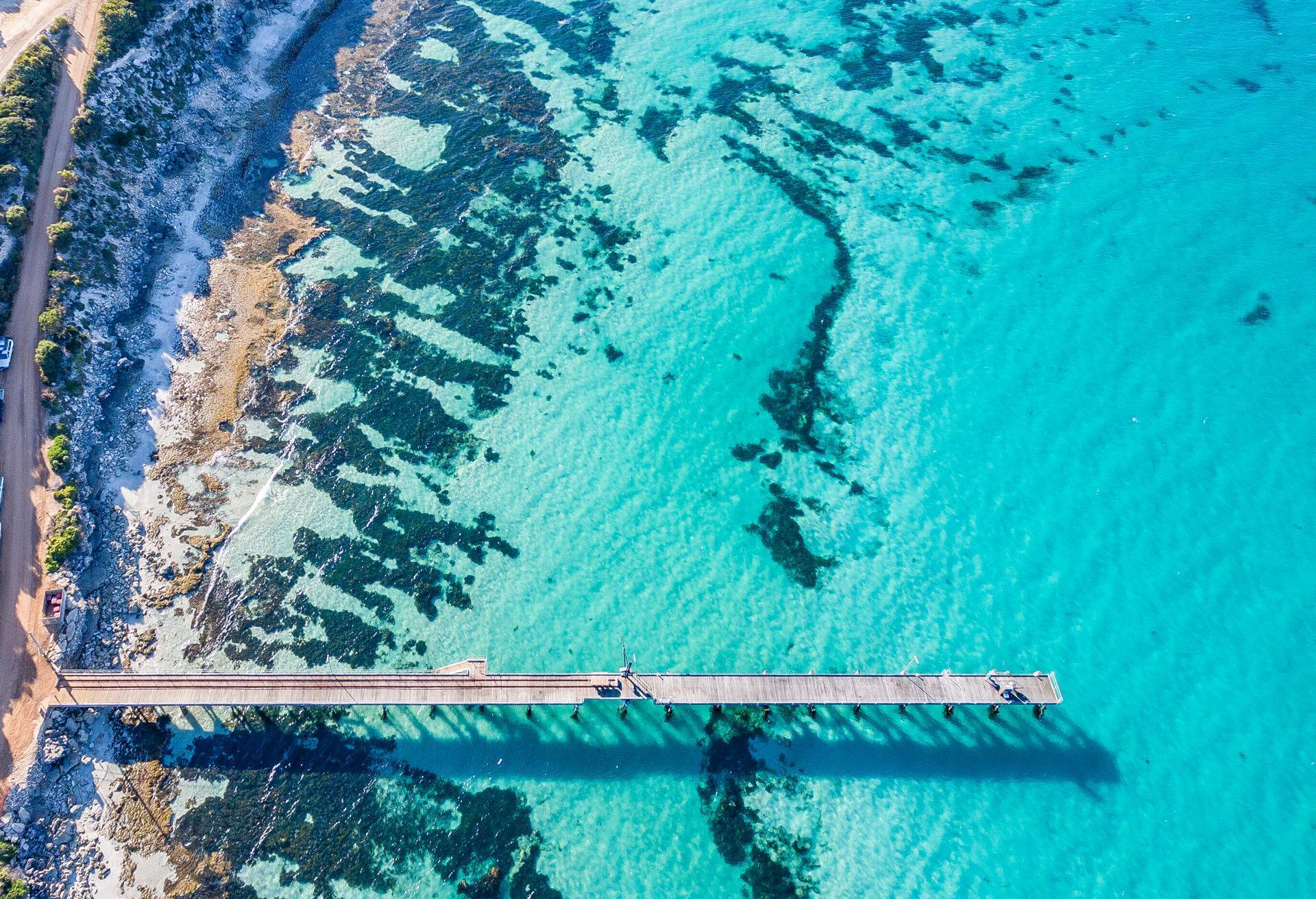
Vivonne Bay is a gorgeous white-sand beach on Kangaroo Island, which is accessible by a short boat trip from Cape Jervis in South Australia. You can occasionally see seals in the water and if you want to see more you can head just a little further east to the Seal Bay Conservation Area.
The beach also has fishing spots and there are great picnic areas with barbecue facilities making the beach a great place to spend the day with friends and family. The water is great for water sports with good waves for surfing, though take care, especially with children as the beach isn’t patrolled by lifeguards.
Glenelg Beach
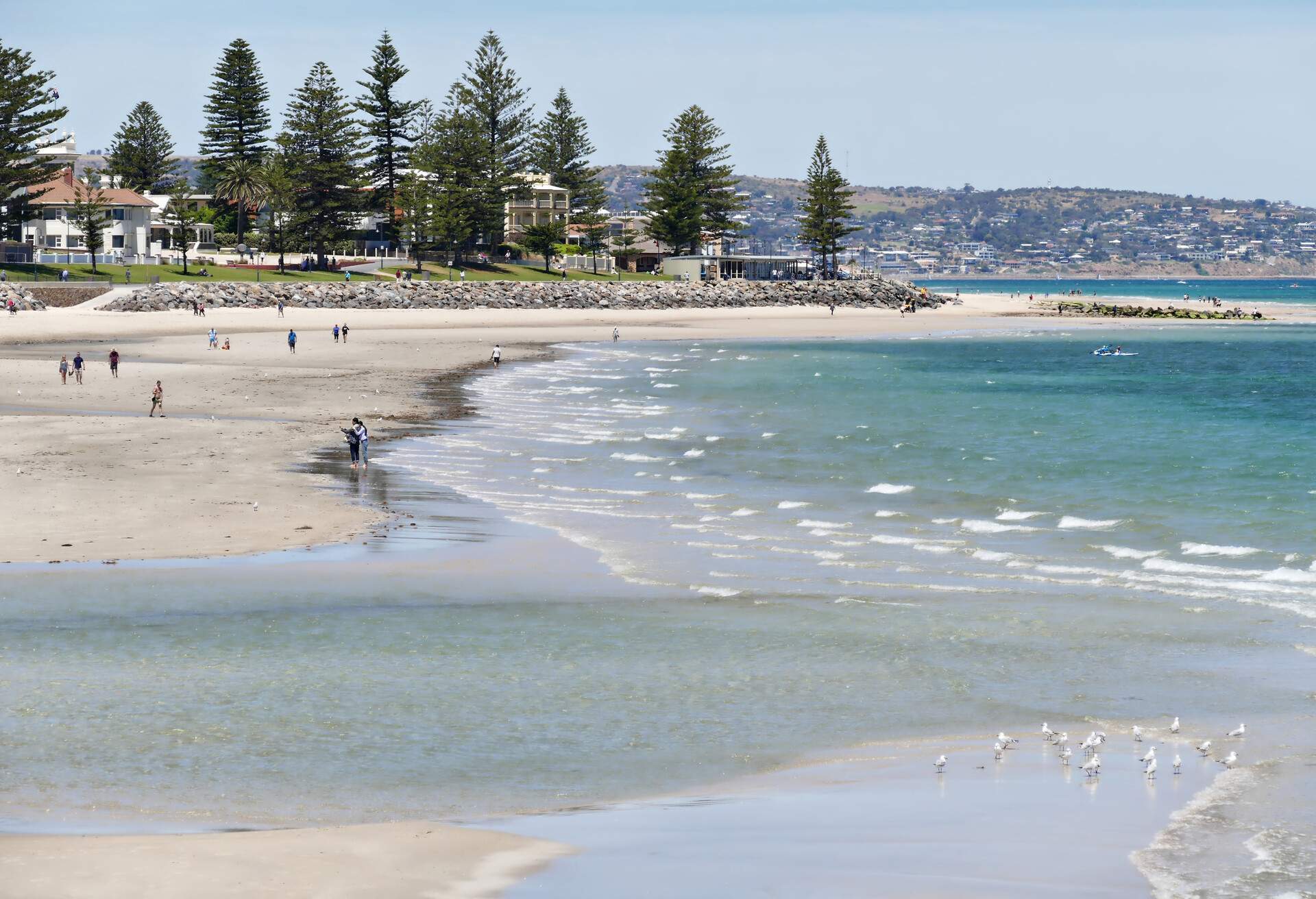
Glenelg is a white-sand beach very close to South Australia’s capital of Adelaide, popular with both locals and tourists. The beach is essentially part of the main street with shops and restaurants mixing with soft sand and a jetty perfect for getting snapshots of the sunset.
This beach usually has calm waters perfect for swimming. Anyone staying in Adelaide should make sure to make the trip. Glenelg can get very busy during the summer months, particularly December and January, but you’ll usually still find space to set up your beach towels.
